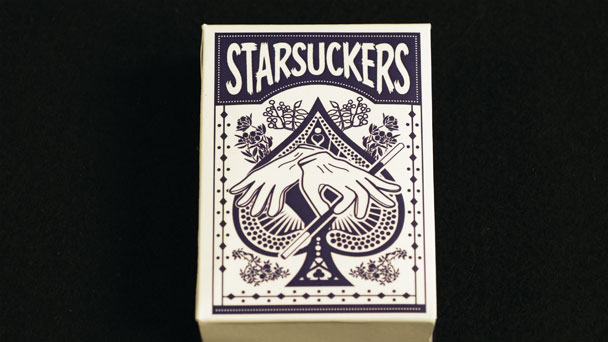
Stars in their eyes: does Starsuckers hang the media out to dry?

A great big two fingers up to celebrity-obsessed media has come recently in the form of Starsuckers, from the director of BAFTA nominated documentary Taking Liberties, Chris Atkins. The film attempts to mix anthropological examination with some hilarious hoaxes, intent on exposing the way the media exploits the human desire for fame. The film orders itself into lessons, instructing the audience in a self–consciously patronising way on how we are regularly duped by large corporations and media organisations into consuming celebrity culture to a worrying degree.
After completing Taking Liberties, Atkins was told that not having any famous people in the documentary (besides Tony Blair) could hinder the marketing of the film. He was given a list of names, including Tracey Emin and Prince Philip, who could help boost promotion. “It was a mad collection of people who had nothing to do with the film,” says Atkins, speaking to the audience after a screening of Starsuckers at Screen on the Green, Islington. It was this that gave him the idea for a new project, a documentary that would expose what he saw as the shady goings-on within Western media.
“I think there is a natural human need to be famous, I want fame as well, why do you think I made the film?” says Atkins, “But the need people have is exploited by those who don’t have their interests at heart, and it is causing lots and lots of harm, especially to children.” One section of the film sees parents signing images of their children away at a fake talent agency, and allowing them to be filmed posing with plastic axes and taking shots of fake alcohol (more than reminiscent of a memorable scene from Sacha Baron Cohen’s Brüno) and is disturbing, if not predictable.
Classrooms of children across the globe are filmed raising their hands en mass when asked if they wanted to be famous. It is these images that Atkins hopes will urge audiences into considering the media content they consume more carefully. “Tabloid journalists will have to check their facts,” he adds ironically.
Perhaps the most notorious section of the documentary is the well-publicised secret recordings of tabloid reporters, buying invented celebrity stories on Amy Winehouse and Girl’s Aloud member Sarah Harding among others, clips of which were leaked to the Guardian before the film’s release. While the stories appear light-hearted and trivial, it is the underlying worry behind the ready acceptance of fabricated information that worries Atkins. “The same journalists that start their careers on the gossip pages then get promoted and are running the papers, and they clearly aren’t very good at checking truth from falsehood. Their formative years are spent printing babble, and then they go and decide which political parties to back during a general election. They have vast influence over all of our lives, they decide what we know and what we don’t know, but are utterly unaccountable.”
Atkins conducted an interview with media mogul Max Clifford on “celebrity culture”, who was unaware that he was being secretly filmed after the cameras were put away. Famous for taunting journalists with snippets of off-the-record scandal that cannot be printed or aired, Clifford was none too pleased with having the tables turned. “Max Clifford will give an interview to anyone, well, he might be a bit more careful now,” quips Atkins.
On 23 October, he received an email from Carter-Ruck on behalf of Clifford, threatening an injunction against the film, and he is reluctant to comment on the situation further, having heard rumours that they have dispatched some people to the screening. He jokes “They just injuncted my answer, sorry.”
In an ironic turn, Clifford was approached by both CNN and ITN for comment when clips from Starsuckers had first been leaked to the press, which he happily gave, unaware that he had been tricked into appearing in the documentary.
While the exposé of Clifford provides an entertaining segment in the mishmash of case studies that Starsuckers presents, is the real message lost? Starsuckers is problematic, as it is often unclear what Atkins is really trying to say.
Too many points are squeezed in to the film, unsure of whether it is attacking multinational companies or the trashier elements of the press – the exploitation of the public to make money, or just the inability to verify sources when gathering celebrity stories. The desire for fame is explained by social scientists and linked back to caveman mentality – it is justified in the film through psychological explanation – and yet the audience is urged to break away from this seemingly inevitable pattern by…well it isn’t really clear.
Atkins doesn’t want to be complicit in the media process, he purposefully avoided showing the faces of particular celebrities in a scene at Cannes Film Festival, saying, “I didn’t want to be doing the things we were criticising the media of doing I suppose.” And yet leaking clips to national newspapers for promotion buys straight into the loop between media, advertising, and finance that he warns us against, even if it is an unavoidable situation. Certainly the aim of Starsuckers isn’t to offer a solution, but provide an insight into problems thrown up by the current situation, even if the documentary fits itself into the world it criticises.







COMMENTS